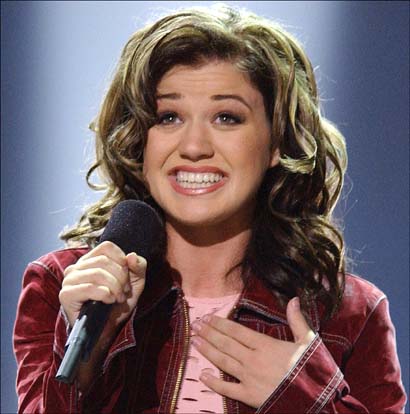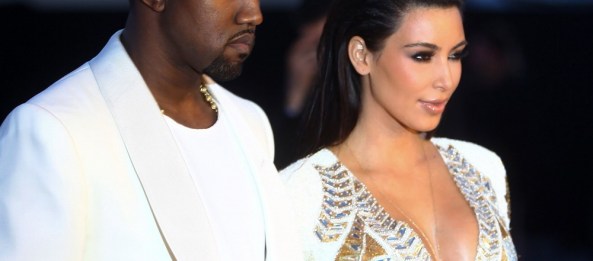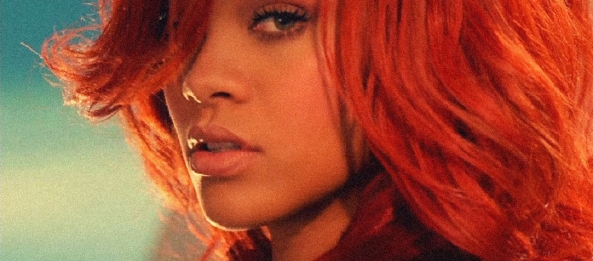Category: Entertainment
The Invaders – Classic Sci-Fi TV
“The Invaders. Alien beings from a dying planet. Their destination, the Earth. Their purpose, to make it their world. David Vincent has seen them. For him, it began one lost night on a lonely country road, looking for a shortcut that he never found…”
So begins, what is for me, unarguably the most atmospheric opening title sequence to any TV show ever made.
I remember watching this show when I was a kid during school holidays and its depiction of one man’s crusade against an alien invasion absolutely fascinated me. Watching it again today thrills me no less, and possibly even more because now I can appreciate it for its subtext, the general processes that went in to filming it and of course, the nostalgia – perfectly tailored slim-fitting suits (fashionable once again) and gas-guzzling cars with chewing gum suspension and Batmobile-like rear fins over chrome bumpers so deep and wide you could stretch out and sleep on them. Having been made almost half a century ago, there are certain things about the show that are a little simple but overall it holds up very well for a contemporary audience, particularly if one bears in mind the era in which it was made.
Roy Thinnes plays architect David Vincent, who one night witnesses the landing of a flying saucer and subsequently learns of an alien plot to take over the world. However, when he attempts to convince the authorities of his discovery he is not believed and is considered to be a bit of a crackpot. Thereafter, every episode begins with Vincent turning up at random locations around the U.S. with the belief that the weird or unexplained occurrence he has learned of in the area is alien in nature and therefore worthy of investigation in the hope that he can get his hands on some proof to back up his wild claim. Sadly for him, obtaining that proof is not as easy as he would like because the aliens are a resourceful bunch and experts at disappearing without a trace. More often than not, Vincent winds up at the end of each episode back at square one, no closer to being able to show the world the truth. Although, giving the man credit, he usually manages to scupper whatever plans the aliens were up to.
The reasons this show worked so well were numerous, not least because of the central concept of one man, a hero figure, fighting against a seemingly invisible force in order to save mankind. Many of the greatest stories ever told have that saviour figure at their core. Then there was the element of paranoia rooted deep within the American psyche at the time thanks to the “Red-Scare” a decade earlier and the lingering fear that communists were infiltrating every level of society with the intention of influencing and undermining the American way of life. Invasion of the Body Snatchers made in 1956 clearly reflected this obsession and was a definite precedent for The Invaders. But then, the same concern is still relevant today as we are all uncomfortably aware of the difficultly in trying to recognise a deadly enemy with a few pounds of Semtex strapped around their waist when they look, dress and talk just like the rest of us.
The Invaders was a finely put together show with excellent production values thanks to producer Quinn Martin who was at the time, already a big noise in television. Much of the filming was done on location which injected a measure of realism into the show too and the writing was gritty and generally dark in nature. There were no happy endings to this show; at best an episode would end with a mild sense of accomplishment and relief – yes, a single battle won but let’s not forget the main war continues.
Thinnes as Vincent was perfectly cast as the lonely hero and never failed to convince me of the nightmare world he inhabited. He was certainly a capable actor in the action scenes and although he made Vincent likeable, he portrayed him as a man carrying the burden of not being able to trust anyone, of harbouring utter hatred for the invader for destroying the life that he had had and essentially forcing him into a life on the road to continually pursue or be pursued. The show also had plenty of guest stars to keep things interesting and the acting was generally top-notch.
The wonderfully evocative theme tune composed by Dominic Frontiere (a regular of Quinn Martin productions) together with the opening titles that allows us to see aliens aboard a space ship heading towards Earth while a deep, leaden voice narrates the introduction are incredibly atmospheric and have been etched on my memory forever. Seriously, if you’re a sci-fi fan who enjoys shows like the X-Files and Dark Skies but you’ve never seen The Invaders, then I highly recommend you check it out. It only ran for two seasons and a mere 43 episodes were aired between January ’67 and March ’68 but it’s gritty, intelligent science fiction and well worth viewing.
The Genius Behind Celebrity Culture and Tabloid Journalism
The word ‘celebrity’ is one used so often now it has virtually evaporated into the realm of nothingness. Where once it was used to denote someone worthy of ‘celebration’ and signify a prominence in the public consciousness, with ever expanding media outlets, sports, films, music, television and opportunity for pure notoriety, nowadays the label is thrown about just as liberally as if we were labeling ourselves.
In 1961 a man called Daniel J. Boorstin wrote a book called The Image: A Guide to Pseudo-events in America. In it, he defined celebrity as “a person who is known for his well-knownness”. Saying that due to a technological revolution, ease in communication and a cultural change in journalism, that the term had “severed fame from greatness” – effectively saying the relationship between what you did and how famous you were had become virtually non-existent. That was over 50 years ago.
In 2012, rich and famous like Kim, Khloe and Kourtney Kardashian, Paris Hilton, Katie Price, Amy Childs and more are some of the many individuals who have risen to the forefront of our awareness, becoming household names and making millions to boot – but for what? An interesting characteristic of the phenomena that is 21st century celebrity culture, is it’s peculiar (at worst, vulgar) fascination with personality, rather than craft, creed or contribution to society. ‘Celebrity’ enthusiasts in 2012 are much more likely to care about a star’s ‘dirty secrets’ (which in all, aren’t that secretive) than they are to find out about their latest film role or album they’ve spent nine months molding in a high-rise New York studio. The perception of what equates to success has changed drastically, who gives a fuck what you do – as long as people pay attention. Even the idea that modern ‘reality’ stars represent a fascination with character is flawed; I mean, look at this video of Kim Kardashian on Alan Carr’s Chatty Man – I’ve seen turds with more personality.
So if celebrity culture is so vacuous, empty and superficial, what’s the big deal? Where does the fascination, obsession, exposure and fortune come from? The answer is altogether a more clever affair.
If you’re a citizen of the United Kingdom of Great Britain and Northern Ireland, you’re probably aware of one of the less appetising aspects of our nation. While our Broadcast Journalism oozes sophistication, sensibility and stoicism (a trait that makes the likes of yankee Fox News look like a live feed from a mental asylum) our newspapers, tabloids and print media is where our share of the nutjobs lie. With an obsession with scandal, exclusives and sensationalism wrapped in a confidently crude preoccupation with anyone off the telly – the British press and magazine stands present a fertile patch for celebrity culture to grow, and grow, and grow.
The thing is, the likes of OK!, More!, Hello, Now and every other similar magazine in existence (not to mention the tabloid’s gigantic appetite for anything ‘celeb’) are widely assumed to have a tough job on their hands. You’d be forgiven for thinking that your favourite members of the rich and famous are much too busy to deal with the likes of an army of Entertainment Journalists, and that the thought of a gabbling sweaty intern looking for column inches would be enough to convince anyone to temporarily abandon the public sphere in favour of a glass of champy and a bubblebath in private seclusion. No, not quite.
The fact is, whether it’s our luminous “prince charming” Peter Andre, or DIY SOS presenter Nick Knowles (no, i’m not even fucking joking) every single one of these ‘celebs’ will rely on these publications to some extent, whether it’s an extra buck or the basis for their entire wellbeing. Kerry Katona might rant on about ‘press intrusion’ and respecting privacy, but if it weren’t for her staple in the British magazines and tabloids, she’d be behind a till at Tesco, on top of the mountain of ‘those who were famous but aren’t anymore’. There’d be no TV interviews, no reality programmes, no fly-on-the-wall documentaries – because nobody would give a flying fuck, simple as.
‘Dramality’ programmes like TOWIE, Made in Chelsea, Geordie Shore and Keeping Up With The Kardashians essentially survive on coverage of the cast’s extra-curricular activities – and others’ interest in them. Now, imagine if the entire media simultaneously stopped giving a fuck; these people would drop off our radar like a sack of shit, but they won’t. Extroverted, fame hungry individuals like these present an opportunity for endless content, it’s a dream come true.
The magic thing about Celebrity Culture is it’s virtually self-sufficient. Publications need their column inches, celebs need their space in the spotlight, less they face the reality of a life of perceived ‘mediocrity’ – no attention, no sequins, and no glitter and champagne. OK!, Hello and their compatriots are willing to satisfy this desire in return for endless details of your life, elaborated emotions and saucy stunts. Their very presence fortifies the myth of what’s hot, who’s in fashion, who’s worth talking about and who isn’t. Their ability to create and manifest their own stories and plot lines, only for people to lust after them later is at best a con (and at worst a travesty). The fact that Britain’s biggest selling newspaper has a Politics section dwarfed 10-fold by its Entertainment coverage is a sad sign to say the least, all the worse considering it floats on a bed of bafoons. And I’m sorry, if you’re still paying money to read about Kerry fucking Katona 11 years after she left Atomic Kitten, you’re a moron mate.
Video of the Week: Jackie Chan vs Jonathan Ross
Jackie Chan invites a punch to the face from Jonathan Ross
Video of the Week: Man Narrowly Avoids Being Hit by Car
What it takes to be a Superstar
Being a Superstar is much like being a King (or Queen, sorry feminism) in that more often than not there can be only one true head of popular culture reigning supreme, providing a template to emulate and later a deterrent for the hipsters to flock from. Alas, like King William and Queen Mary; some lucky buggers have been nice enough to share the treasured cradle, but not always. So in essence, what actually does make a modern musical icon? I hustled my two beautiful brain-cells together for this almighty of questions, and this is what I got.

Don’t be a f*cking Pisshead
Original Pogues’ frontman and a beauty to behold, Shane McGowan (pictured left) according to rumour first drank stout at the age of six – and due to his unending thirst for his face on a piss strewed backstage urinal, the man has yet to quell his drink habit – and subsequently regain any mass public sympathy (or recognition for that matter). Although the likes of John Bonham, Jim Morrison and Amy Winehouse have gone on to reach quasi-legend status, the fact they couldn’t keep their proverbial hands out the cookie jar has solidified them as rock n’ rolls tragedies. After all, addressing your pop-culture subjects entails a working mind, and a pulse.

Be the complete opposite
With cliché rhetoric like “What doesn’t kill you makes you makes you stronger’ and an origin story that makes the U.S Consitution look like Gaddafi’s history of sexual encounters – Kelly Clarkson embodies the clean-cut, democratically elected pop-star that epitomises the ‘oh-so nice’ ‘girl next door’ appeal that’s needed if you’re gonna hold a legitimate claim to the crown of popular music. If Clarkson’s family friendly aura isn’t initiating any sign of nausea, Jessie J’s “Just DO IT LIKE A DUDE, forget about the PRICE TAG, STAND UP for the love. Remember, NOBODY’S PERFECT and always be true to WHO YOU ARE” are sure to have to dashing for the nearest Oasis album, you’ll always need your music insulin to keep your rock n’ roll glucose levels in balance. Next.

Have a myriad of hits
Of course, nothing entitles to you to music super-stardom more than a list of hit albums and singles. Being a contender for the title usually implies a pretty hefty (and half decent) back-catalog, but many a star has gone without this most prestigious of prerequisites. Jennifer Lopez has yet to wash up a good solid record to show for her pseudo-iconic status in the American pop world, such cultural anomalies still allude me to this day. Worthy examples would include Beyoncé and the Princess of Pop herself, Britney. Both of which have contributed heavily to ‘the gay man’s top ten things that ever happened to this planet, ever’; forget Adele’s amazing yet short stint in the eye of the globe – if you want super-stardom you better be prepared to be in it for the long haul. Or have your head shaved, either way.

Get a cause, any cause
Being a cultural legend means that merely by expectation you have to do something with it. Take Bono for example; “the face of fusion philanthropy” – a man whose sheer status as a pop symbol entitled him anything from a place at Bob Geldof’s Live Aid to chilling with the president of Brazil, all in the name of helping starving children of course. And who couldn’t mention Lady Gaga herself, a woman who managed to do a profoundly pretentious and over-hyped “concept album” about self-acceptance while simultaneously appointing herself PR Executive for the entire planet’s LGBT community. Blur bassist Alex James found himself useful in his band’s hiatus and became a neo-calorie crusader of sorts, gracing the pages of The Sun as their now resident Food Columnist; cringeworthy I know but brownie points for standing out. Oh wait, double brownie points – by actually championing our fatty favourites he’s become a culinary rebel. A foodie and a rockstar rolled into one, anything’s possible.




